Lingua Sinica Newsletter, 17 June
News, analysis, and commentary on Chinese-language media from the PRC and beyond.
Welcome back to Lingua Sinica.
"Connection timed out." Even amid everything happening in our turbulent world this past week, these three words struck me as most directly disheartening. I had just learned that China Labour Bulletin (CLB), a nonprofit that has promoted and defended workers' rights in China since 1994, was shutting down in Hong Kong due to "financial difficulties and debt issues." Its website had already vanished.
It is impossible to quantify the value of the more than three decades of dedicated research, writing, data and personal stories gathered by CLB's team in both Chinese and English — a nearly comprehensive record of labor and economic development in China through the breakneck growth of the 1990s and 2000s into today's era of the gig economy and artificial intelligence. With any luck, this trove of information will not be lost to us for long, and will be stowed away somewhere safe and public — close at hand but far from the grasping hands that would rather grind it into dust.
The security of such information is an urgent question for journalism and media everywhere, and an existential question for us all — and not just in places like China and Hong Kong. It emerges again further down in this newsletter, as we look briefly at the recent threats against Simon Shen (沈旭暉), a political scientist and commentator now here in Taiwan, who founded the Global Hong Kong Library (國際香港圖書典藏館), a private archive preserving thousands of Hong Kong-related books, magazines, documents and memorabilia that might otherwise be discarded or destroyed. It is also the subject of the latest newsletter sent out today from our companion Chinese-language outlet Tian Jian (田間), which explores the importance and process of archiving by speaking to sources including Xiao Qiang (蕭強) at China Digital Times and "Sam" at Hong Kong Action Archives (香港行動文獻庫).
Read and subscribe. Your paid subscription here at Lingua Sinica helps to support crucial work here, but also across the office at Tian Jian.
But enough from me. On to our selection of stories.
Enjoy!
David L. Bandurski
CMP Executive Director
FLASHPOINTS
China’s America Moment
The heavy-handed Trump administration response to protests in California has Chinese state media gleefully declaring "civil war" in the United States.
Donald Trump's use of the National Guard and US Marines to quell protests in Los Angeles against his immigration policies became a major story across Chinese media last week. Op-eds filled with images of turbulence interpreted the news as pointing toward imminent "civil war," words used in several reports. Pursuing their long-term goal of discrediting the US political system, Chinese state media are now pushing at a door the Trump administration has opened wide.

China's state-run Xinhua News Agency reported that its journalists had been injured while covering the protests. The article purported to deliver the will of the protesters, quoting them as saying they were "hard-working local community residents who wanted to express their opinions peacefully." The report reached second-place on the Baidu search engine's list of hottest news topics on June 9. The same day, another trending post from a prominent self-media account predicted that the events in California were a "prelude" to deeper conflict. "America's 'civil war' has begun" (美国"内战"开始了), the author declared, calling the unrest "the first large-scale street conflict of the Trump 2.0 era" and comparing downtown Los Angeles to "a Middle Eastern war zone." The post received close to 1.6 million reads.
In Hong Kong, media similarly mirrored these narratives of American decline. The online news outlet HK01 and state-backed newspaper Ta Kung Pao (大公报) both framed the conflict as a consequence of long-term social divides within the US, with HK01 warning that without resolution, America would "eventually fall into the abyss."
For more on Chinese media portrayals of protests in the United States, and our perspective at CMP on how Trump administration actions have been a huge assist for China's external propaganda efforts, read "A Trump Card for China's Media."
MISDIRECTIVES
A Taipei Girl in Beijing
A Taiwanese writer's criticism of her homeland serves Beijing's unification messaging, backed by state publishers and the government office for Taiwan affairs.
"She criticizes Taiwan, and this actually resonates with many young media friends in Taiwan." So, with mendacity, began a June 11 profile of Taiwanese writer Guo Xueyun (郭雪筠) in Shanghai-based outlet The Paper (澎湃), coming two days after she published an essay in Guancha (觀察網), another of the city's online outlets.

The coverage exemplifies China's cultivation of sympathetic Taiwanese voices to support unification messaging. Writing under the byline "Taipei Girl Looks at Mainland China" (台北女孩看大陆), Guo has become a recurring fixture in China's state-run and tightly controlled media, where only one narrative on Taiwan is accepted — that "unification" with China is inevitable, and the deepest desire of the population.
Born around 1990, Guo graduated from the advertising department at Taiwan's Fu Jen University before moving to Beijing in 2012 for graduate studies at Peking University. Her generational perspective — contrasting Taiwan's current struggles with China's (much-mythologized) current prosperity — reinforces the state narrative that Taiwan would benefit from closer ties leading eventually to what China views as "unification," and many Taiwanese view as annexation. In a 2018 interview with Beijing Youth Daily, she reflected on feeling both amazed and ashamed during her initial Beijing experience to discover that while Chinese typically saw the positive aspects of Taiwan, the reverse was not true.
Guo's transformation from struggling student to prominent author is of course also a story of concerted institutional backing. Her debut book, Taipei Girl Looks at Mainland China (台北女孩看大陸), was published in 2016 by People's Literature Publishing House (人民文學出版社), controlled by China Publishing Group (中國出版集團有限公司) — a government company under the State Council. Her 2022 novel, I Am in Beijing (我在北京), was released through Jiuzhou Publishing House (九州出版社), a publisher directly controlled by the Taiwan Affairs Office (中共中央台灣工作辦公室), the CCP body that coordinates propaganda and messaging toward Taiwan.
TRACKING CONTROL
Laying Down the Law
China's internet control body outlines ambitious plans for 2025, targeting AI governance and expanding control mechanisms across cyberspace.
The Cyberspace Administration of China (CAC) has published its first comprehensive annual report on "internet rule of law development" (网络法治发展), signaling expanded digital control mechanisms for 2025 under the umbrella of what should be more accurately termed "rule by law." The 278-page document references 2025 as the final year of China's 14th Five-Year Plan and promotes three separate legal frameworks for building "rule of law" (法治) in cyberspace — indicating the department may push harder to meet these converging deadlines.

The CAC explicitly cites "increasing diversity of opinions and groups" online — diversity in this case being a concern to be managed by a control-obsessed leadership — as justification for expanding operations. The report also acknowledges that new developments in artificial intelligence (AI) like the rise and expanding scope of DeepSeek's popular model require careful management to balance "reform and rule of law, development and security."
The CAC report focuses on the governance of AI, the body noting that domestic AI models have achieved breakthrough speeds — fondly referred to as “China speeds” (中国速度) — that have "swept the entire network" (席卷全网) and attracted global attention. In the report, officials describe a new phase of digitization driven by AI that transforms "production tools" (生产工具) and "production conditions" (生产条件), requiring updated regulatory frameworks. The administration plans to strengthen oversight of AI-generated content, algorithmic recommendations, and automated decision-making systems while promoting what it calls "beneficial" technological development.
Beyond domestic control, the CAC emphasizes China's ambition to shape international cyberspace governance rules. The report calls for more assertive participation in global internet governance forums and bilateral negotiations on data flows, emerging technologies, and telecommunications services. Officials plan to leverage platforms like the World Internet Conference (WIC), held each year in Zhejiang, and China-Africa internet cooperation forums like the 2024 China-Africa Internet Development and Cooperation Forum to promote Chinese governance models internationally, while deepening enforcement cooperation with other nations on cross-border cybercrime and digital security issues.
IN THE NEWS
Professional Pressure Cooker
The saga of political repression continues at the beleaguered Hong Kong Journalists Association, the territory's respected professional media body.
On June 14, the HKJA held its annual general meeting and elected new executive members but declined to publicize the results for the first time in its history. Embattled incumbent chair Selina Chen (鄭嘉如), who was re-elected to her post, explained that previous executive members had been harassed by unknown individuals, making secrecy necessary to prevent such incidents. The decision reflects the deteriorating media environment in Hong Kong, where officials and pro-Beijing outlets have directed sustained criticism at the association.
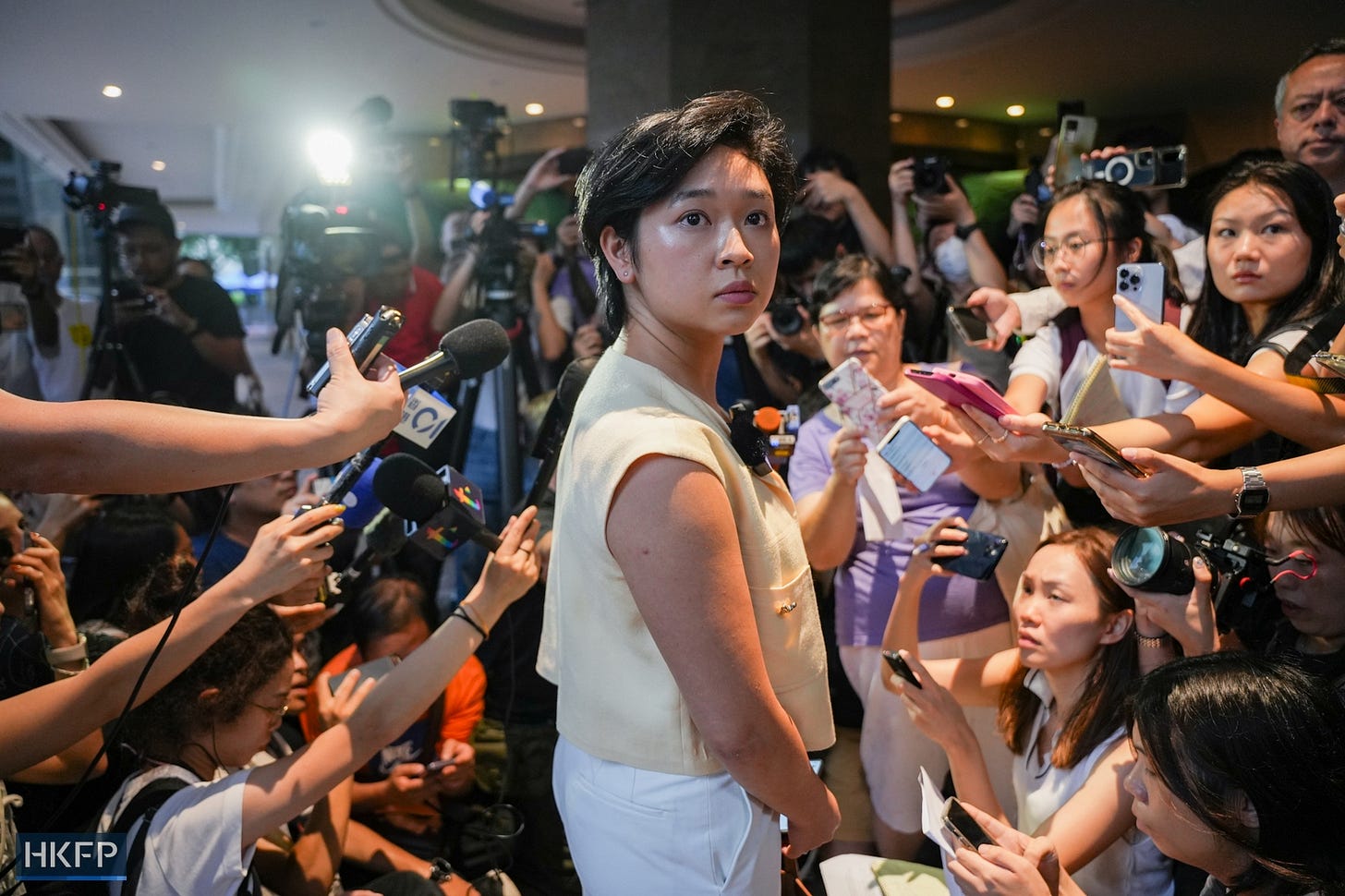
The Bastille Post (巴士的報) reported that five candidates ran for the executive board, while Sherry Lee (李敏妮), the managing editor of the online outlet True Report (透視報), was allegedly blocked from participating. Lee's outlet accused the HKJA of using "illegal means" to revoke her membership this year after she demanded to audit the association's financial records dating back to 2010, claiming without evidence that the group received suspicious large donations before major protest movements in 2014 and 2019.
There is almost certainly a great deal more to Lee’s story. The True Report editor, who according to Hong Kong company filings is 100 percent shareholder in the media company, previously attempted to run for HKJA chair in 2024 but was disqualified over nomination irregularities. She threatened legal action at the time. According to Initium Media (端傳媒), Lee has openly supported Hong Kong's national security law in interviews with bloggers in China.
SHORT STORIES
| China |
Influencer Flip Flop
Chinese state media seized on a visit to Shanghai last week by Taiwanese fitness influencer and former Democratic Progressive Party (DPP) supporter Chen Chih-han (陳之漢), framing his livestreamed trip as evidence that Taiwan's ruling DPP — the target of fierce official criticism from China in recent years — spreads "misinformation" about conditions inside China. State outlet Xinhua amplified Chen's fawning remarks about high-speed rail seat backrests and restroom doors—mundane observations that Chinese media portrayed as debunking "DPP lies." Meanwhile, pro-Beijing Taiwan outlet China Times documented Chen's on-camera apology to the outlet, which he once denounced as "red media" that should "get out of Taiwan" during 2019 anti-China protests. The coordinated coverage, which described Chen as a "walking DPP rumor-crushing machine" (行走的"民进党谣言粉碎机"), strategically emphasized his transformation from DPP supporter to critic following a 2020 shooting incident, presenting his journey as authentic political awakening rather than manufactured spectacle designed to promote Beijing's unification narrative. Chen was shot by gang members from the "mainlander" triad organization Bamboo Union (竹聯幫) in August 2020, allegedly in retaliation for his anti-China activism.
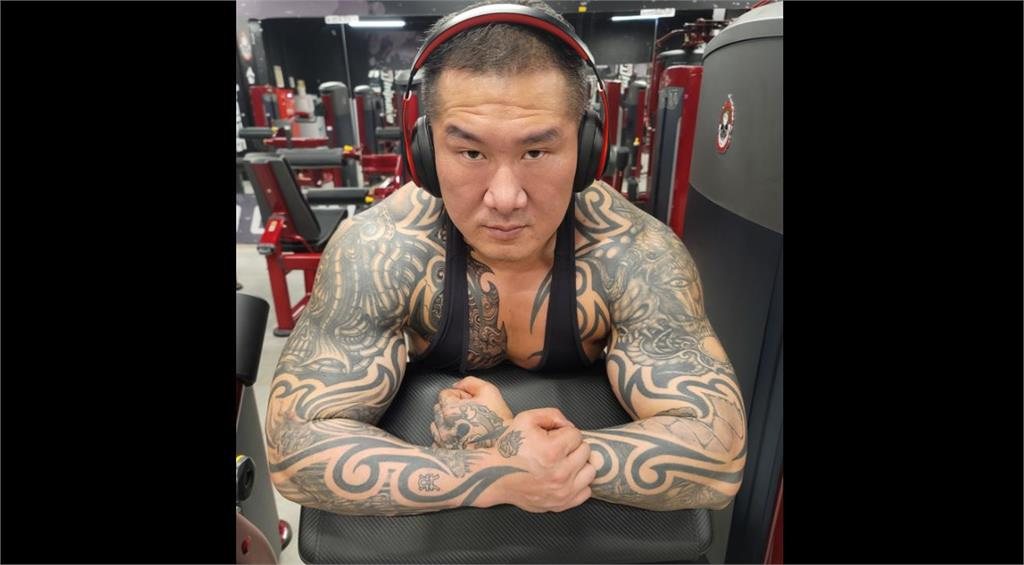
| Hong Kong |
Game Gags
Hong Kong authorities banned the Taiwanese mobile game "Reversed Front: Bonfire" (逆統戰:烽火) on June 10, marking the first time the city has publicly condemned a gaming application under national security laws. The National Security Department warned residents against downloading, sharing, or financially supporting the game, claiming it promoted Hong Kong and Taiwan independence while encouraging armed revolution against China's government. Hong Kong security chief Chris Tang (鄧炳強) described the game, according to Taiwan's Central News Agency (CNA), as "quietly poisoning young minds" (悄然荼毒年輕人思想) with "extremely malicious" tactics. Created by the Taiwan-based development team ESC (台灣境外戰略溝通工作小組), a civilian volunteer group, the strategy game allows players to control various factions, including those representing Taiwan, Hong Kong, and other regions in scenarios involving the overthrow of communist rule. An ESC spokesperson previously told BBC Chinese the group's main work is to "contact overseas anti-communist organizations, and assist overseas allies in promoting propaganda and organizational work." Following news of the ban, online searches for the game surged dramatically, according to Taiwan's Up Media (上報). The app has been removed from local download platforms in Hong Kong.

Playing With Fire
Former Chinese University of Hong Kong assistant professor Simon Shen (沈旭暉), a political scientist who studied at Oxford under Sinologist Rana Mitter and is now a visiting scholar at National Sun Yat-sen University (中山大學) in Taiwan, faces accusations of selling pro-Hong Kong independence materials through his Global Hong Kong Library (國際香港圖書典藏館). Wen Wei Po (文匯報), a paper controlled by China's central government in Hong Kong, alleged that Shen's online platform promoted separatist agendas while displaying and selling items from the 2019 protests — disguised (the paper said snidely) as "precious collections" (珍貴藏品). Pro-Beijing politician Elizabeth Quat Pei-fan (葛珮帆) warned that sharing such content on social media could violate the National Security Law. Barrister Ronny Tong Ka-wah (湯家驊), a non-official member of Hong Kong’s Executive Council, a formal body of advisors to the chief executive, raised the specter of transnational repression, warning that violators anywhere in the world could face police pursuit. At the Bastille Post (巴士的報), columnist Lai Ting Yiu (黎廷瑤) described Shen as "playing with fire." The Global Hong Kong Library website states it hopes to preserve Hong Kong collections and ensure "the truth will not be revised." For more on the crucial role of archives in information freedoms, be on the lookout for today’s edition of our companion publication Tian Jian (田間), or read their recent interview with Ian Johnson.
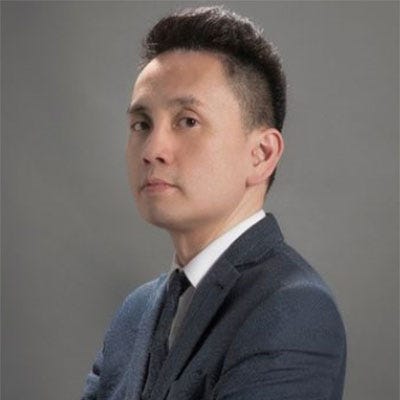
Ice Breaker
Marking what observers — too optimistically? — deemed a potential "breakthrough" in relations between local officials and international media, Hong Kong's top tourism official, Rosanna Law (羅淑佩), granted a rare interview to The New York Times for a June 7 article about the city's efforts to attract big-spending tourists. According to reports from Ming Pao (明報) and Photon Media (光傳媒), such interviews have become increasingly scarce in recent years, with foreign media privately lamenting they are often "turned down" when requesting official interviews. Chief Executive John Lee (李家超) has yet to assent to interviews with international media, despite multiple requests since taking office three years ago. The recent Times interview represents for some a notable departure from the typical media approach of the Lee administration, which has contrasted sharply with that of former Chief Executive Carrie Lam (林鄭月娥), who frequently engaged during her tenure with outlets like The Wall Street Journal, CNBC and Bloomberg. But for those who read optimism into the recent interview — not so fast. Recent national security policing actions and pressure against the media suggest the hard approach is here to stay, even if the administration softens its stance toward foreign media.
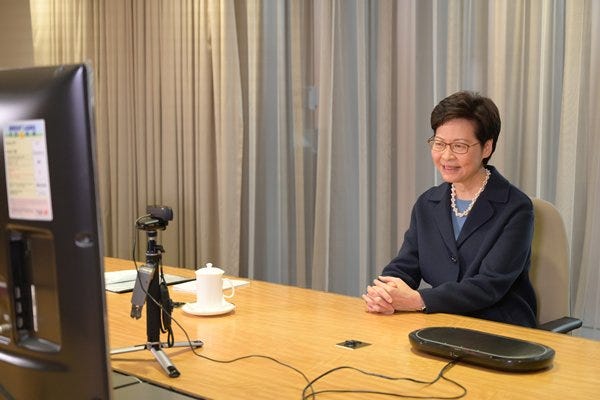
| Taiwan |
Forum Fantasies
As former Taiwan president Ma Ying-jeou (馬英九) attended China's Straits Forum (海峽論壇) over the weekend, claiming onstage that Taiwan's people “support cross-strait peace and cooperation” and invoking the CCP-aligned notion that Taiwan's "unification" is inevitable, media back home were mostly scathing in their assessment of the trip. At ETtoday (東森新聞雲), commentator Huang Wei-han (黃暐瀚) challenged Ma's claims about Taiwanese public sentiment on relations, arguing that while Taiwanese support peace, the unification demanded by China is "absolutely not Taiwan's mainstream opinion." The Central News Agency (中央社) reported official condemnation from Taiwan's Mainland Affairs Council (MAC), the cabinet-level administrative agency responsible for cross-strait relations, which said Ma had "lost his position" as a former head of state by echoing Beijing’s “One-China Principle” (一個中國原則) and failing to address China's ongoing pressure campaigns against Taiwan. Digging deeper into Ma’s visit, Up Media (上報) reported Beijing's behind-the-scenes efforts to secure Ma's attendance by dangling the carrot of a possible "Ma-Xi third meeting," while revealing how other Kuomintang figures — including all city and county-level KMT officials — had avoided the forum amid domestic political pressures. There were reports, in fact, that some within the opposition party had urged Ma not to attend, fearing his participation would fuel the ongoing recall campaigns targeting vulnerable KMT legislators.
Internal Strife at Public Broadcaster
Taiwan's Public Television Service (公視), or PTS, a public service broadcaster established in 1998 through legislative action (and the source of the video report above on the Ma visit to China), faces workplace harassment allegations after a longtime employee accused a department supervisor of systematic bullying, according to the United Daily News (聯合報). The employee claims the supervisor deliberately failed to follow proper procedures for approving story submissions, leading to isolation, and forced the worker to handle double assignments while subjecting them to verbal abuse when deadlines were missed. The employee filed internal complaints and reported the matter to Taipei City's Labor Department, which concluded that violations had indeed occurred. The employee has retained counsel to pursue litigation. However, the case has reportedly now been complicated as the accused supervisor has countered with their own allegations of harassment. PTS General Manager Hsu Chiu-hua (徐秋華) confirmed that an internal investigation had been completed, with a personnel review committee meeting scheduled for late June.
| Macau |
Some Places Left?
Paulo Rego (古步毅), the president of Plataforma (澳門平台), a bilingual Chinese-Portuguese weekly newspaper launched in Macau in 2014, criticized a BBC Chinese report published earlier this month documenting restrictions on independent journalism in Macau, after two All About Macau Media (論盡) journalists were detained by police while covering Legislative Assembly proceedings in April. Invoking a direct quote from Macau lawyer Jorge Menezes (何睿智), the BBC report suggested in its headline that "independent journalism has no place left" (獨立新聞已無立足之地) in the territory. Rego dismissed this as a selective narrative that portrays "everything as controlled." He argued instead that serious journalism continues in Macau despite changes to the environment. However, critics note that Plataforma receives government subsidies and maintains partnerships with Chinese state media including China Daily and Xinhua News Agency, raising questions about its independence when defending Beijing's media policies. The incident marked the first time Macau journalists were detained while reporting, according to Taiwan's Central News Agency.



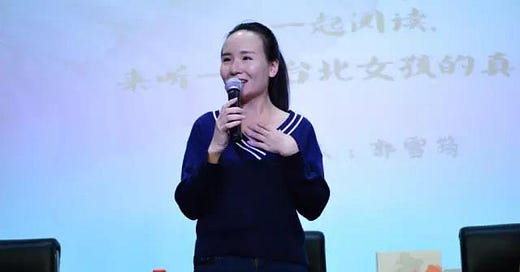



Fantastic read, as always.